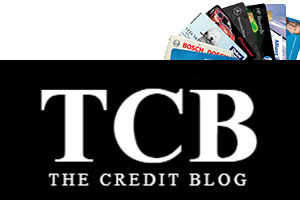Did you know that you can negotiate with your creditors? Most consumers don’t know this, and the idea of trying to negotiate some kind of settlement or other relief can be really intimidating.
However, it’s genuinely not as challenging as it sounds, and you may be able to get lower monthly payments, fix a negative item on your credit report and even get annoying credit collection agencies to stop calling.
If you are behind on payments for any of your credit cards or other unsecured debt, the best advice you can follow is to meet the situation head-on. Don’t hesitate or ignore the situation for weeks or months. The sooner you contact your creditor, the more negotiation options likely are available to you.
Tips for Successful Negotiations with Creditors
These general guidelines will help to protect your interests and hopefully help to clean up your credit report.
Get the Agreement in Writing
If you are able to reach a settlement agreement with a creditor, make sure that you get that agreement in writing. Don’t make a payment or give the creditor your banking information until you have an explicit, written agreement that spells out all of the details. For instance, if you have negotiated a new payment plan or have agreed to a lump-sum payment, get it in writing because it’s incredibly common for the creditor to forget all about that deal once they have received a payment. So it would be best if you definitely had a paper trail.
Stick to the Facts
During your negotiations, do your best to be businesslike and stick to the facts. You don’t need to disclose intimate personal details. Telling the creditor that you got laid off and then a family member had a medical emergency, or whatever your circumstances may be, is enough.

Fair Debt Collection Practices Act
Also, don’t let the creditor intimidate or frighten you. Thanks to the Fair Debt Collection Practices Act, there are many rules that creditors must obey, though many collection agencies regularly run afoul of these regulations.
Understand Your Rights as a Consumer
Accordingly, it’s critical that you know and understand your rights as a consumer. One of the most essential restrictions that is placed on a creditor is that they can only contact you at a time and manner that you specify. For instance, if you tell the creditor that you are only available to discuss the situation on Tuesdays at 10:00 am on a specific phone line, then that is the only time and manner that they are allowed to contact you.
Protect Your Family
The law further prevents collection agencies from calling your employer or family members to discuss unpaid debts, so be sure to point this out to them.
Reporting Creditors
If you repeatedly have problems with a creditor running afoul of the law, then you may want to report them to the Consumer Financial Protection Bureau.
Negotiating with a Creditor
Gather your patience and your tenacity, because this can be a drawn-out battle. Before contacting a creditor, grab a pen and some paper so you can take some notes. It also doesn’t hurt to have some money in your bank account so that you can offer to make a payment as soon as a written agreement is in place. If you don’t have any money, then wait for a while and look for ways to save some money.
When you’re on the phone with a creditor, make them a settlement offer. Usually, this requires some negotiation. For instance, you might offer to pay off a lump sum that represents some percentage of your total debt. Then, the creditor may make a counteroffer, usually a much larger number. You make a counteroffer in turn, and this process may be repeated several times.
The idea is that eventually, you’ll reach a sum that is agreeable to both parties. But, remember, don’t actually send any money until you’ve got that agreement in writing.

Sticking to the Terms of the Agreement
Once you have the written agreement, make sure that you stick to the terms. That means making any payments in the agreed-upon amounts and at the agreed-upon intervals. Consider sending checks with a copy of the written agreement to the creditor.
Follow up on your credit report to ensure that the negative items were removed if that was part of your agreement. If the creditor does not hold up their end of the bargain, you can always lodge a complaint with the Consumer Financial Protection Bureau as well as the Better Business Bureau. When you follow up on these complaints with the creditor, you should get satisfactory results.
Negotiating with your creditors isn’t as intimidating as it sounds at first. Nonetheless, it does require patience and tenacity. If you are unable to keep up with payments on unsecured debt, then your best option may be to open the lines of communication and offer a settlement.

